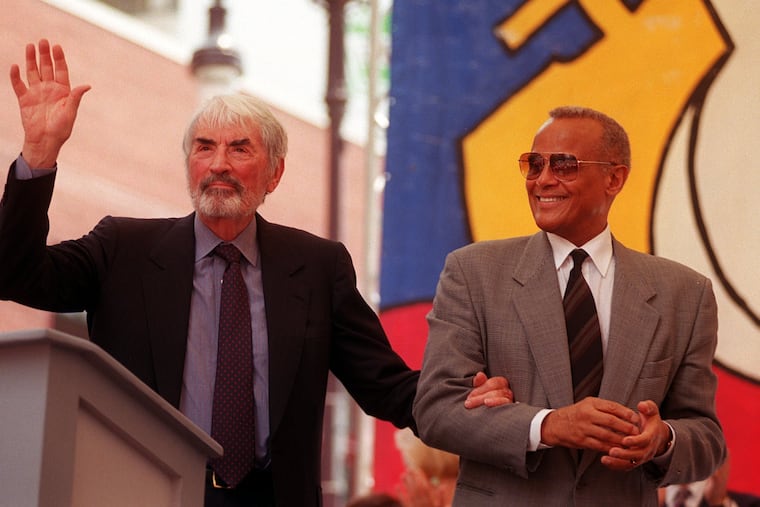The late Harry Belafonte won the Marian Anderson Award in 1998. Here’s what he said at his acceptance speech.
Read Harry Belafonte's remarks from the 1998 Marian Anderson Award.

Singer, actor, and activist Harry Belafonte died Tuesday of congestive heart failure at age 96.
Belafonte was known for his work as a singer and actor — such as the hit song “Banana Boat Song (Day-O),” as well as films including The World, Flesh and the Devil, Kansas City, Carmen Jones and Odds Against Tomorrow — as well as his activism, going on to play a key role in the civil rights movement.
In 1963, Belafonte helped organize the March on Washington, and worked to recruit fellow stars such as Sidney Poitier and Paul Newman to attend. The following year, Belafonte and Poitier gave tens of thousands of dollars to Mississippi activists following the murder of three “Freedom Summer” volunteers.
Belafonte was also a close friend of Rev. Martin Luther King Jr.; the pair first met in 1956. Belafonte would go on to produce a benefit concert for the Montgomery, Al. bus boycott that thrust King into the national dialogue. King, Belafonte said, helped him realize that “the movement was more important than anything else.”
In 1998, Belafonte was awarded Philadelphia’s prestigious Marian Anderson Award. Named after iconic singer Marian Anderson, a Philadelphia native who was the first Black singer to perform at the Metropolitan Opera, the award is given to prominent entertainers who have had a positive impact on society.
In his acceptance speech for the award in June 1998, Belafonte said that “the generosity of a few voices from the world of Black culture” were “most critical to my escape” from the consequences of growing up in poverty. Among those who inspired him, he said, were Anderson, Duke Ellington, Katherine Dunham, Paul Robeson, Joe Louis, Jessie Owens, Langston Hughes, and others.
“Marian Anderson, Paul Robeson and others made me understand that artists have the power to journey into their neighbors’ world, be touched by the differences they find, and be inspired by the commonality we all share because of these differences,” Belafonte said. “They made me unafraid of diversity.”
“I can rejoice in singing the songs of the Jew, the Irish, the Italian, the Russian, the Spaniard, the African,” Belafonte added. “Our tongues may be different, but our songs are of each other. Our purpose is to speak truth and be a mirror for the world to see itself.”
Belafonte’s full acceptance speech is below:
This article contains information from the Associated Press.